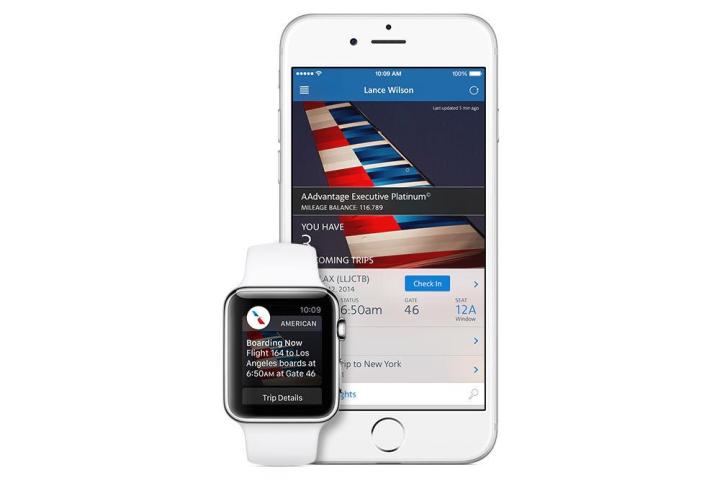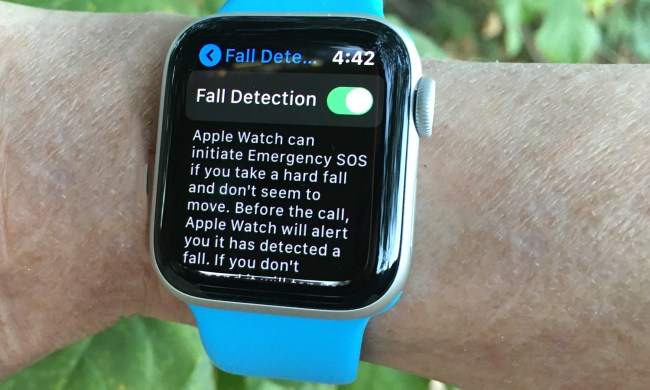

Even though Apple presented the Apple Watch with a lot of fanfare alongside the new iPhones, the company didn’t offer up too many details. However, now that we’ve seen some of the info from the SDK and accompanying guide, we know the official sizes and screen resolutions of the two Apple Watch variants. The 42-millimeter Apple Watch model will feature a screen with 390 × 312-pixel resolution, and the 38-millimeter model will pack a 340 × 272 pixel resolution.

It also turns out there are three types of screens: Glance, Actionable Notifications, and the full, nebulous app screen with all your apps. The Glance screens are exactly what they seem — a quick, tidbit of information you can digest and read in a single glance. Actionable Notifications allow the user to respond, go into the app, and perform other actions. The app screen looks exactly as we saw it in September, with many tiny, circular app icons bopping about.
Developers also have access to the iOS 8.2 code, which allows for connections and notifications to cross over from iPhone to Apple Watch and vice versa. Apple offers developers suggestions for layout and placement of elements in their apps and it’s likely that Apple will have a lot of control over how the apps turn out, especially since the Apple Watch is such a key project for the company.

ESPN, American Airlines, and Instagram are special invitees to the program, but many more app developers will surely jump on the bandwagon soon.
The Watch takes advantage of many of the cool new features found on iOS, including Handoff continuity between devices and AirPlay, so you should be able to control your Wi-Fi-enabled speakers. Based on what’s in the WatchKit SDK, it appears that the iPhone will take the lead and the Apple Watch will play second fiddle — for now. Of course, all this could change, as the platform continues to evolve and grow over time.


